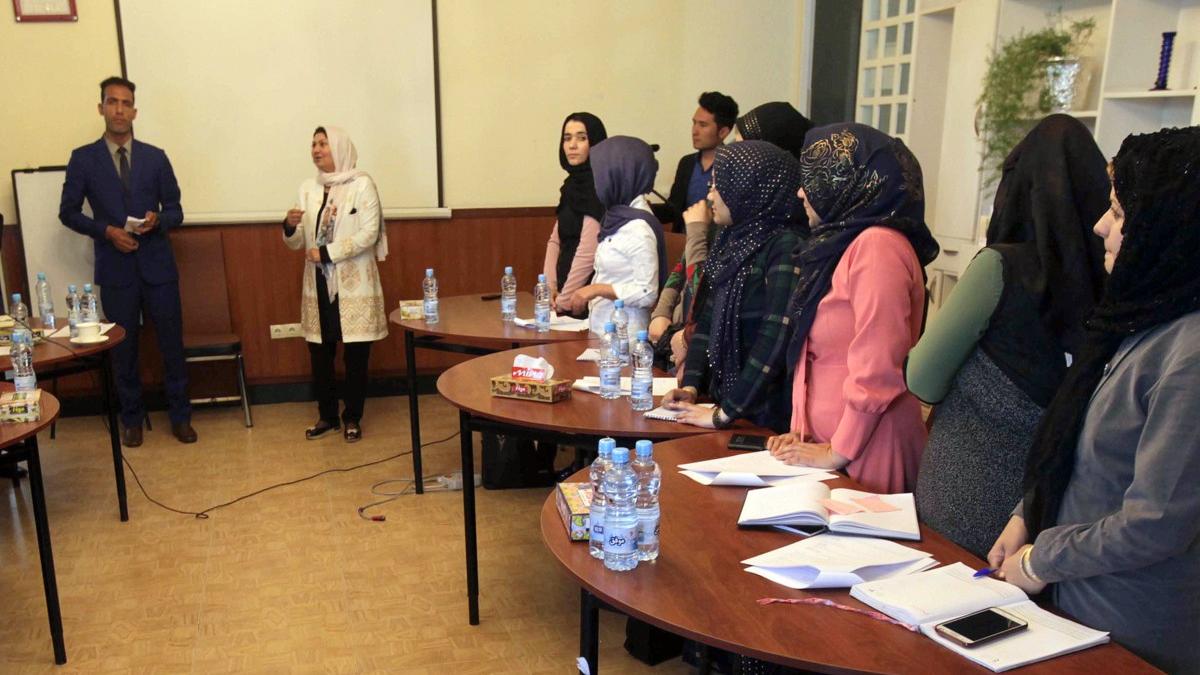HERAT - Improving conditions for women in the workforce, including responding effectively to workplace harassment, was the focus of a UN-backed radio debate in the western province of Herat last week.
Some two dozen people, including government officials, women’s rights activists, entrepreneurs and other community leaders, gathered to participate in the recorded event, which was facilitated by the Herat regional office of the UN Assistance Mission in Afghanistan (UNAMA).
The discussion, which will be broadcast via Ariana Radio to an audience estimated at 400,000 in and around Herat city, ranged from the importance of more women working in government positions to issues around eliminating gender-based violence and workplace harassment.
“When someone commits workplace harassment, irrespective of the victim’s willingness to forgive it, there should be effective government measures to punish the perpetrator,” said rights activist Sosan Behboodzade.
Sayed Ahmad Rahmani, the Head of Herat’s Justice Department, noted there are stronger legislative measures being drafted to address workplace harassment.
“We know that we still have issues with the context of legal procedure in tackling harassment, but we hope that after the new anti-harassment law, we will have a better legal framework in place.” Mr Rahmani said.
The event was part of UNAMA’s outreach activities to advance the participation of Afghan women in political life, including boosting their representation in government – particularly in decision-making positions -- and increase their participation in business and trade.
The western province of Herat lies on old trade routes on the west side of Afghanistan, with roads running from the province to the bordering countries of Iran to the west and Turkmenistan to the north. The mostly rural and agricultural province is Afghanistan’s primary trade gateway to Iran.
UNAMA is mandated to support the Afghan Government and the people of Afghanistan as a political mission that provides 'good offices' among other key services. 'Good offices' are diplomatic steps UN takes publicly and in private, drawing on its independence, impartiality and integrity, to prevent international disputes from arising, escalating or spreading.
UNAMA also promotes coherent development support by the international community; assists the process of peace and reconciliation; monitors and promotes human rights and the protection of civilians in armed conflict; promotes good governance; and encourages regional cooperation.






